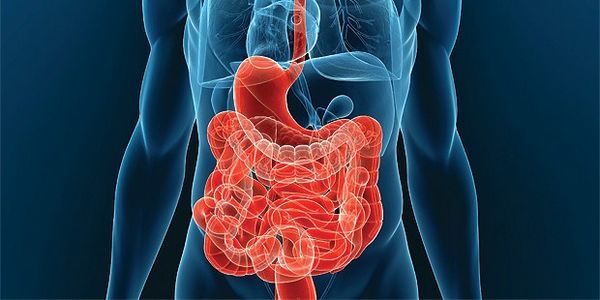Enterocolitis – treatment of disease. Symptoms and prevention of diseases of Enterocolitis

Enterocolitis – What is this disease? Enterocolitis is a sindromokomplex, which is characterized by lesions of the mucous membranes of the intestine (How to thin, and Tolstoy) inflammation nevospalitelnogo nature or less.
In the population prevalence of this pathology varies from 15 to 35%. Among diseases of the gastrointestinal tract is one of the most common.
Enterocolitis – The cause of the
There are a number of causes of enterocolitis, among which we can mention the following:
- bacterial and viral intestinal infection (salmonellosis, enterovirus infection, Shigella, etc.);
- parasitic infestations (helminthiasis, opisthorchiasis, ameʙiaz, trichomoniasis, etc.);
- exposure to toxins (some medicines, alcohol surrogates, poisons, caustic chemicals);
- mechanical damage (frequent prolonged constipation);
- alimentarnye factors (irrational, irregular meals);
- other gastrointestinal diseases autoimmune or allergic nature (irritable bowel syndrome, yazvennыy colitis).
Enterocolitis – Symptoms
Clinical manifestations of enterocolitis depend on the severity of the process and its root causes. Acute enterocolitis, usually, begins abruptly with a rise in body temperature, headache, nausea and seniors in the body of the infective Genesis (80% cases). Appears flatulence, abdominal pain of different localization, vomiting may occur, diarrhea (with mucus, pus, blood). Chronic enterocolitis clinical symptoms usually less pronounced. When chronic abdominal pain may occur, bloating and gurgling, dyspeptic symptoms. Constipation alternating with diarrhea, stools often malodorous (as a result of the processes of fermentation in the gut), can manifest asteno-vegetative syndrome (lethargy, slackness, fatigue, weight loss).
Enterocolitis – Diagnostics
In the diagnosis of acute infectious enterocolitis plays an important role in gathering epidemiological history. Among the methods of laboratory and instrumental Diagnostics apply scatological method (coprogram-feces analysis), bacteriological research method faecal masses, Colonoscopy with biopsy, sigmoidoscopy, radiological research methods. In general clinical blood analysis can be detected desproteinemia, anemia, dyslipidaemia, violations water exchange. When analyzing the qal'a possible detection of pathogens, leukocytes, mucus, as well as amilorei, steatorrhea, kreatorei.
Enterocolitis – Types of disease
In the first place, enterocolitis are divided into acute and chronic forms. Acute enterocolitis often associated with gastritis. Long-term current chronic enterocolitis eventually leads to atrophic changes in the mucosa of the small intestine and colon, that manifests itself in violation of its functions.
On the jetiologicheskomu basis of enterocolitis is divided into the following types of:
- Bacterial;
- Viral;
- protozoal;
- parasitic;
- alimentarnye;
- toxic;
- mechanical;
- secondary enterocolitis (developing in the face of other diseases).
Enterocolitis – Actions of the patient
In case of any of the previously described symptoms should contact a specialist.
Enterocolitis – Treatment
In the treatment of acute enterocolitis tactic depends on the etiology. Infective Genesis prescribe antibiotics, sulfanilamide means or antiviral drugs, When the toxic effects washed stomach, appoint detoxication therapy and intestinal chelators. Pain syndrome cropped spazmolitikami. Can be prescribed drugs, normalizing bowel motility, as well as enzyme preparations (mezim etc). In case of dysbiosis prescribe probiotics and drugs, restoring normal intestinal microflora.
Chronic enterocolitis normalize character and power mode, also appoint etiotropic therapy in infectious origins of inflammation, Cancel medication, that can disrupt the digestive tract, as well as treat accompanying pathology of the gastrointestinal tract (duodenitis, gastritis, etc.). Patients with a predominance of the putrefactive processes in the gut diet is recommended with the exception of the diet of complex proteins, dairy products and raw fiber. With the predominance of fermentation processes they exclude rye bread, whole milk, products, containing large amounts of sugar, cabbage. Without exception, all patients are advised to avoid acute, Fried, salty and acidic foods, that may be irritating properties.
Enterocolitis – Complications
Late treatment your doctor has a risk of developing such complications, as perforation of the bowel with the development of peritonitis, that is a threat to life.
Enterocolitis – Prevention
Prevention of enterocolitis is personal hygiene, food processing, rational and balanced nutrition.
